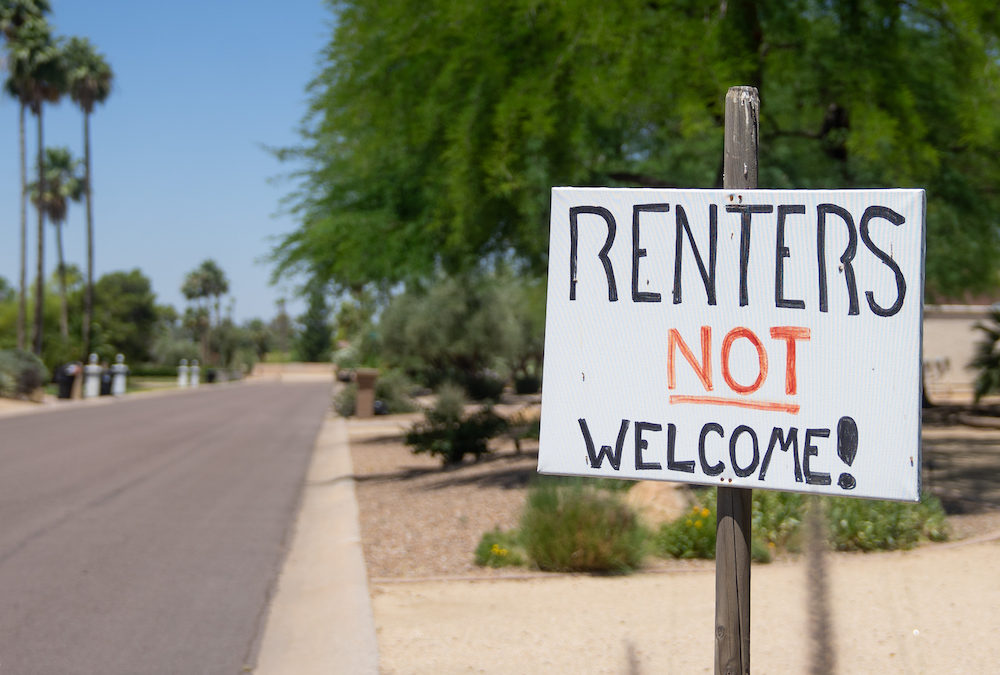Short-Term Rentals (STRs) are growing more and more popular. The rental business that used to be limited to commercial properties like hotels is now spreading to residential homes. With sites like Airbnb and other home sharing services, it is relatively easy to either list or find a home to rent as an alternative to traditional short-term lodging options. But what does this mean for the real estate world?
What are STRs?
For those who don’t know, companies like Airbnb have websites where homeowners can list their homes, or portions of their homes, for short-term renting to guests. This allows the homeowner to make an extra income, and provides the guests an option for unique, sometimes cheaper, lodging. Over the years, homeowners and businesses have turned homes into mini luxury lodging, with hotel amenities like free shampoo and snacks. Airbnb’s are popping up more and more across the country and becoming more widely available in more cities. With this growth, problems that these properties bring with them are becoming more apparent.
What’s the Issue with Short-Term Rentals?
One issue is legality. In many areas, short-term rentals, or renting for 30 days or less, is not allowed in a residential home due to the zoning laws. Another major issue is how they affect neighbors. Neighboring homes to airbnbs may have to deal with new neighbors every week, some of which may cause damage or pollution (including noise) to the neighborhood. Airbnb hosts also need to be weary of their insurance policies. Most homeowner’s insurance only covers damage done by the owner, or long-term renter–so damage done by short-term renters may not be covered. Airbnb offers a “Host Guarantee” to their hosts which covers “damage to a host’s property (home, unit, rooms, possessions)”, but is not to be considered an insurance policy. It it is not extensive enough to cover the wide range of damages that may occur to the home, such as:
- Damage caused by pets
- Damage to common areas not listed as part of the rental
- Damage from “ordinary wear and tear”
These issues bring us to our most relevant one—their effect on home value. If a home is being rented out as a STR, that home itself may experience a value increase due to its earning potential. However, it could also see a decrease in value from any damage done by the renter. The value of neighboring homes may also see a decrease, due to the conditions that a STR home can bring to its surrounding area.
How to Appraise the Problem
The circumstances that airbnb’s bring about can become a unique issue that appraisers will need to tackle. The best way to start out is to check if the property is an Airbnb, or if it is a home that is by one. If it is an airbnb, check for any damage that could have been done by renters that could take away from the home’s value. You’ll also need to make sure you’re familiar with the area: know the zoning regulations and ordinances in place: Are airbnbs technically legal there? Do noise levels violate ordinances? How significant is this in this market area (are they all party houses/airbnbs, is it a quiet neighborhood, etc)?
Airbnbs could fall under the category of “external obsolescence”, or a factor off the property–out of the owner’s control–that reduces the value. Not everything you’d think is an external obsolescence may be oneFor example, the appraiser has to give evidence with that value adjustment, and loud parties every other week may be hard to show, especially alongside a comparable property with a similar situation.
Airbnb’s are undoubtedly helpful as an alternative lodging option or additional income source.However, airbnbs and the like are not going anywhere anytime soon, so it’s best to know how to tackle appraising in the world of short-term rentals. Know the property you’re looking at, the area it’s in, and what is acceptable there.

